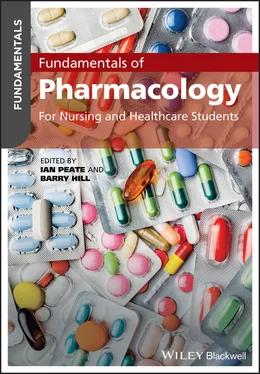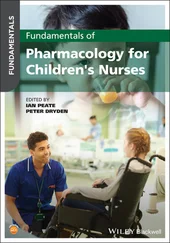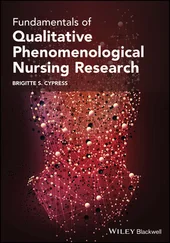1 ...6 7 8 10 11 12 ...29 David WatersRN, BSc (Hons), PGDip, MA Ed, PgCert Research. Associate Professor and Head of Department, Department of Post‐Qualifying Healthcare Practice, School of Nursing and Midwifery Birmingham City University.
David is an experienced nurse and academic, with a clinical background in cardiac care, critical care and aeromedical repatriation. He currently leads the post‐qualifying portfolio, within the School of Nursing and Midwifery at Birmingham City University. He is currently undertaking a PhD, exploring the impact of errors within a critical care setting.
Carol WillsMSc Multidisciplinary Professional Development and Education, PGDip Advanced Practice, BSc (Hons) Specialist Community Public Health Nursing (SCPHN) (Health Visiting), DipHE Adult Nursing, Registered Nurse (RN), Enrolled Nurse (EN), Registered Health Visitor (HV), Community Practitioner Prescriber (NP), Registered Lecturer/Practice Educator (RLP), Senior Fellow (SFHEA), Subject and Program Leader Non Medical Prescribing at Northumbria University.
Carol began her career undertaking enrolled nurse training in 1983 at Hexham Hospital in Northumberland. She then worked within neurotrauma at Newcastle General Hospital and then spent several years in coronary care and intensive care at Hexham Hospital. This experience and additional training to complete registered nurse qualification then stimulated her to focus on primary care and prevention of ill health. Carol worked as a Practice Nurse and Nurse Practitioner in Newcastle city centre and as a Staff Nurse within Northumberland community nursing teams before going on to complete a Health Visiting degree and working in Newcastle as a Health Visitor for several years. During this time, she undertook several leadership and teaching roles including Immunisation Training Co‐Ordinator, Community Practice Teacher and Trust Lead Mentor.
Carol has been a Senior Lecturer at Northumbria University since 2002 and has led several post‐graduate professional programs including the MSc Education in Professional Practice (NMC Teacher Program), PGDip SCPHN and the Non‐Medical Prescribing Program. She has also undertaken national roles including Policy Advice Committee member and Treasurer for the UK Standing Conference SCPHN Education and Subject Expert for several quality approval panels and external examiner roles. Her key areas of interest and research are around developing learning and teaching and advanced level practice.
The overarching aim of this text is to provide the reader with an understanding of the fundamentals associated with pharmacology and the adult patient and in so doing enhance patient safety and patient outcomes. This book will help readers develop their competence and confidence within the field of pharmacology as related to the adult care setting, enabling them to recognise and respond compassionately to the needs of those they offer care to. The contributors to the text are all experienced clinicians and academics who have expertise in their sphere of practice.
The Nursing and Midwifery Council (NMC) in the UK is required to establish standards of proficiency that each nurse must achieve prior to being admitted to the professional register demonstrating safe and effective practice. The standards of proficiency for registered nurses and the standards of proficiency for nursing associates have been established (NMC 2018a, 2018b respectively). The NMC (2018a) standards have been designed in such a way as to ensure that pre‐registration nurses are ‘prescriber ready’ when they have successfully completed their undergraduate nursing program (Prydderch 2019).
If undergraduate, pre‐registration nurses are to be ‘prescriber ready’ there is a need for those nurses to be prepared in order to practice as safe and accountable practitioners. The Fundamentals of Adult Nursing Pharmacology will help nurses add to their repertoire of skills as they acquire appropriate pharmacological knowledge. While there is an absolute need to ensure that much emphasis is placed on the principles of safe drug administration in the nursing curricula, there is also a need to ensure that students are equipped with the pharmacological foundations related to the bigger issues associated with medicines management. The Fundamentals of Adult Nursing Pharmacology provides the reader with an overview of the key issues that will enable them to begin to understand the complexities associated with pharmacology that they will face as well as the exciting challenges that are ahead of them.
Clause 18 of the NMC's (2018c) The Code of Profession Conduct requires all of those whose name appears on their professional register to ensure that if they advise people, prescribe, supply, dispense or administer medicines then they must do this within the limits of their training and competence. They must do this with respect to the law, guidance produced by the NMC and other relevant policies and regulations. In order to comply with the NMC's requirements and other guidance, the nurse must have an understanding of the fundamentals of pharmacology. Professional guidance has been co‐produced by the Royal Pharmaceutical Society (RPS) and the Royal College of Nursing (RCN) (2019) and provides principles‐based guidance to ensure the safe administration of medicines and has also been endorsed by the Royal College of General Practitioners.
There are 18 chapters in your book: the early chapters provide a broader discussion of pharmacology including a general overview of medicines management, legal aspects, pharmacodynamics and pharmacokinetics. Information and discussion concerning the use of prescribing reference guides, the various medicinal formulations, and the importance of preventing, noticing and responding effectively to adverse drug reactions are provided. Analgesics and antibacterials are given individual chapters and the remaining chapters adopt a systems approach.
When you are looking at the table of contents of this text this it might make you feel a little swamped and you could be forgiven for thinking: how on earth am I going to remember, recall and apply all of this information? There are a number of features in the text that will help you with your learning.
Each chapter is fully referenced and evidence based; the chapters begin with an aim and learning outcomes, providing you with an overall flavour of chapter content. At the beginning and the end of each chapter are a range of learning features that test your knowledge including multiple choice questions. This approach has been adopted to enhance learning and recall.
In most chapters there are a number of boxed features that can assist the reader in applying this complex subject area to their practice. The Clinical Considerations boxes address clinical issues related to chapter content. The Skills in Practice feature offers a ‘how to do …’ component. The Episodes of Care feature uses a case study approach, linked to chapter content that can occur in any care setting. Some chapters feature a glossary of terms and a further reading list is provided at the end of every chapter to encourage you to delve deeper.
As a healthcare student, your learning is not about rote learning and being able to remember. It is more than this: it is about applying that learning to the various situations you will find yourself in, ensuring that the patient, the person you have been given the privilege to offer care and support to, is at the heart of all you do. The goal should be to take your learning further, to develop, to discover and be curious. In this text you will learn and develop your own strategies that will help guide you so as to shape the way you study and learn, changing the way you think as you become a life‐long learner with a myriad of transferable skills.
Читать дальше












